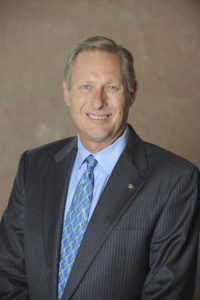SVN International Corporation (SVNIC), a full-service commercial real estate franchisor of the SVN® brand, announces that it has added College Station, Texas-based Riverstone Commercial Real Estate to its franchise roster. Going forward, the new venture will operate as SVN|RIVERSTONE COMMERCIAL REAL ESTATE.
Founded in 2017, SVN | RIVERSTONE COMMERCIAL REAL ESTATE is led by Founding Partners and Managing Directors Jim Jones and Jess Buenger. The rapidly expanding firm offers brokerage and advisory services to buyers, sellers, landlords, and tenants across the central Texas markets. SVN | RIVERSTONE COMMERCIAL REAL ESTATE also provides consultancy services on investments and development projects. More information about the firm is available at svnriverstone.com
“SVN | RIVERSTONE’s top priority is getting the most value for our clients. With SVN, we gain expanded visibility and marketing dexterity to deliver the best value possible no matter the geography or asset class,” said Managing Director Jim Jones. “Now, we not only reach a business owner across town, but an investor across the globe.”
“Even prior to our official announcement of our partnership with SVN, we have collaborated on deals sourced through SVN offices in Las Vegas, Chicago, Florida, Austin, and the Northeast,” added Managing Director Jess Buenger. “This partnership has expanded our reach tremendously.”
“In SVN | RIVERSTONE, we have found a firm with a natural fit to our SVN culture that puts clients first, said Marc Seinfeld, SVN’s Vice President of National Franchise Sales and Development. “We are delighted to work with SVN | RIVERSTONE and increase our presence in Texas.”
About SVN International Corp.
The SVN organization is a globally recognized commercial real estate entity united by a shared vision of creating value for clients, colleagues and communities. Currently, SVN comprises over 1,600 advisors and staff working in more than 200 offices across the globe. SVN’s brand pillars represent the transparency, innovation and inclusivity that enable all our advisors to collaborate effectively with the entire real estate industry on behalf of our clients. SVN’s unique Shared Value Network® is just one of the many ways that SVN Advisors create outsize value for all stakeholders. For more information, visit www.svn.com.










 Boston, MA — SVN International Corp. (SVN), a full-service commercial real estate franchisor of the SVN® brand, announced the addition of its newest franchise office, SVN | Wood Properties, based in Knoxville, Tennessee. Led by Managing Director George Brown, the firm specializes in providing commercial sales, leasing, property management, development and consulting services throughout the East Tennessee market. SVN | Wood Properties is the fifth SVN office in the state of Tennessee, further expanding the company’s full-service, collaborative approach to commercial real estate in the region.
Boston, MA — SVN International Corp. (SVN), a full-service commercial real estate franchisor of the SVN® brand, announced the addition of its newest franchise office, SVN | Wood Properties, based in Knoxville, Tennessee. Led by Managing Director George Brown, the firm specializes in providing commercial sales, leasing, property management, development and consulting services throughout the East Tennessee market. SVN | Wood Properties is the fifth SVN office in the state of Tennessee, further expanding the company’s full-service, collaborative approach to commercial real estate in the region. Nashville, Tenn., SVN | AVAT Realty, LLC, one of the nation’s premier net lease brokerage firms, has completed the sale of Millwood Manor, a 200-unit multifamily development in Nashville, Tenn. Andrew Agee, Senior Advisor of SVN | AVAT Realty, LLC brokered the sale of the 201,850 square-foot property for $13.45 million.
Nashville, Tenn., SVN | AVAT Realty, LLC, one of the nation’s premier net lease brokerage firms, has completed the sale of Millwood Manor, a 200-unit multifamily development in Nashville, Tenn. Andrew Agee, Senior Advisor of SVN | AVAT Realty, LLC brokered the sale of the 201,850 square-foot property for $13.45 million.
 Alexandria, Va. (January 24, 2018) SVN | Hamm & Company one of the nation’s premier hospitality brokerage firms, has advised on the successful purchase of the Residence Inn by Marriott in Alexandria, Va. The 240-room, 257,000 sq. ft. hotel was purchased for $72 million.
Alexandria, Va. (January 24, 2018) SVN | Hamm & Company one of the nation’s premier hospitality brokerage firms, has advised on the successful purchase of the Residence Inn by Marriott in Alexandria, Va. The 240-room, 257,000 sq. ft. hotel was purchased for $72 million. Commercial This week, our 5 for Friday features David Dunn, Managing Director of SVN | Dunn Commercial. Dunn specializes in corporate lease, distressed assets, industrial, institutional capital markets and single tenant investment, within the Dallas and Fort Worth metropolitan areas.
Commercial This week, our 5 for Friday features David Dunn, Managing Director of SVN | Dunn Commercial. Dunn specializes in corporate lease, distressed assets, industrial, institutional capital markets and single tenant investment, within the Dallas and Fort Worth metropolitan areas. Chicago, Ill. (January 16,2018) – SVN | Chicago Commercial has completed the sale of Indian Trails Apartments and Ridge Gardens Apartments for $26.5 million. Combined, the two affordable housing complexes include 312 units.
Chicago, Ill. (January 16,2018) – SVN | Chicago Commercial has completed the sale of Indian Trails Apartments and Ridge Gardens Apartments for $26.5 million. Combined, the two affordable housing complexes include 312 units. This week, our 5 for Friday features Steven Stoehrer, Managing Director of SVN | Stora based in New York, New York. Stoehrer specializes in corporate lease back, industrial, office, property management, and retail. In the last 36 months he has closed, listed, and underwritten in excess of 500 million dollars worth of investment grade assets
This week, our 5 for Friday features Steven Stoehrer, Managing Director of SVN | Stora based in New York, New York. Stoehrer specializes in corporate lease back, industrial, office, property management, and retail. In the last 36 months he has closed, listed, and underwritten in excess of 500 million dollars worth of investment grade assets This week, our 5 for Friday features Deborah Quok, Managing Director of SVN | QAV & Associates, based in San Francisco, California. Deborah is accomplished in advising clients in real estate strategies, marketing and transactions. Deborah specializes in office leasing, medical office building sales and leasing, and corporate services.
This week, our 5 for Friday features Deborah Quok, Managing Director of SVN | QAV & Associates, based in San Francisco, California. Deborah is accomplished in advising clients in real estate strategies, marketing and transactions. Deborah specializes in office leasing, medical office building sales and leasing, and corporate services. Chicago, Ill. (January 3, 2018) – SVN | Chicago Commercial, one of the nation’s premier net lease brokerage firms, recently completed the sale of two commercial buildings in Illinois for a total of $24 million. SVN | Chicago Commercial advised the buyers in the purchase of 19-27 West Jefferson St. in Naperville, Ill. and 1230-1242 West Washington Blvd. in Chicago.
Chicago, Ill. (January 3, 2018) – SVN | Chicago Commercial, one of the nation’s premier net lease brokerage firms, recently completed the sale of two commercial buildings in Illinois for a total of $24 million. SVN | Chicago Commercial advised the buyers in the purchase of 19-27 West Jefferson St. in Naperville, Ill. and 1230-1242 West Washington Blvd. in Chicago. This week, our 5 for Friday features Justin Langlois, CCIM, Managing Director of SVN | Graham, Langlois and Legendre, based in Baton Rouge, Louisiana. Langlois specializes in the acquisition and disposition of Class A office, garden-style office and multifamily properties, including student housing, affordable housing and market rate housing sectors. He is also active in retail, self-storage, land and industrial brokerage.
This week, our 5 for Friday features Justin Langlois, CCIM, Managing Director of SVN | Graham, Langlois and Legendre, based in Baton Rouge, Louisiana. Langlois specializes in the acquisition and disposition of Class A office, garden-style office and multifamily properties, including student housing, affordable housing and market rate housing sectors. He is also active in retail, self-storage, land and industrial brokerage.
 This week, our 5 for Friday features
This week, our 5 for Friday features  AUGUSTA, GA (December 21, 2017) – SVN | KD LANCLOS & ASSOCIATES, LLC, one of the nation’s premier investment sales brokerage firms, has completed the sale of a premier multi-family portfolio consisting of 446 units in Augusta, Ga. Lexerd Capital purchased the well-positioned portfolio for $34.85 million.
AUGUSTA, GA (December 21, 2017) – SVN | KD LANCLOS & ASSOCIATES, LLC, one of the nation’s premier investment sales brokerage firms, has completed the sale of a premier multi-family portfolio consisting of 446 units in Augusta, Ga. Lexerd Capital purchased the well-positioned portfolio for $34.85 million.
 This week, our 5 for Friday features Perry Laufenberg, Managing Director of SVN | Desert Commercial Advisors, in Phoenix, Arizona. Laufenberg is accomplished in transaction management, marketing, working with brokers and landlords of apartments, shopping centers, and office buildings.
This week, our 5 for Friday features Perry Laufenberg, Managing Director of SVN | Desert Commercial Advisors, in Phoenix, Arizona. Laufenberg is accomplished in transaction management, marketing, working with brokers and landlords of apartments, shopping centers, and office buildings. This week, our 5 for Friday features Alex Dmyterko, President and Managing Director of SVN | BlackStream based in Greenville, South Carolina. Dmyterko is accomplished in leading and managing functions of commercial real estate including development, acquisitions, finance & investment, leasing, construction, joint venture structuring, partnerships, legal negotiations, property management and accounting.
This week, our 5 for Friday features Alex Dmyterko, President and Managing Director of SVN | BlackStream based in Greenville, South Carolina. Dmyterko is accomplished in leading and managing functions of commercial real estate including development, acquisitions, finance & investment, leasing, construction, joint venture structuring, partnerships, legal negotiations, property management and accounting. VICTORVILLE, CA (November 29, 2017) – SVN |MCRE, Inc., one of the nation’s premier commercial real estate brokerage firms, has completed the sale of a multi-family portfolio consisting of 320 units in Victorville, Calif. to Sagebrush Capital Holdings for a total of $27.4 million. Michael Miyagishima, CCIM, Managing Director of SVN | MCRE, Inc. brokered the sale of this portfolio, which is comprised of two apartment communities, The Colony and Golden Sands. Miyagishima represented the seller, Tomanek Associates.
VICTORVILLE, CA (November 29, 2017) – SVN |MCRE, Inc., one of the nation’s premier commercial real estate brokerage firms, has completed the sale of a multi-family portfolio consisting of 320 units in Victorville, Calif. to Sagebrush Capital Holdings for a total of $27.4 million. Michael Miyagishima, CCIM, Managing Director of SVN | MCRE, Inc. brokered the sale of this portfolio, which is comprised of two apartment communities, The Colony and Golden Sands. Miyagishima represented the seller, Tomanek Associates. Pacific Grove, Calif. (November 28, 207) – SVN | King Properties, one of the nation’s premier net lease brokerage firms, has completed the sale of the Villa Del Mar Apartments for $20.5 million. The 76,170 square-foo
Pacific Grove, Calif. (November 28, 207) – SVN | King Properties, one of the nation’s premier net lease brokerage firms, has completed the sale of the Villa Del Mar Apartments for $20.5 million. The 76,170 square-foo This week, our 5 for Friday features Steve Kawulok, Managing Director of SVN | Denver Commercial, LLC in Colorado. Steve specializes in industrial, land, and multifamily/apartment property sectors.
This week, our 5 for Friday features Steve Kawulok, Managing Director of SVN | Denver Commercial, LLC in Colorado. Steve specializes in industrial, land, and multifamily/apartment property sectors. This week, our 5 for Friday features Jay Hintze, Executive Director of SVN | Hintze Commercial Real Estate in West Allis, Wisconsin. Jay specializes in acquisition and disposition of commercial and investment properties, development of senior housing, acquisition and disposition of REO properties, and the municipal interaction between the real estate community and local elected officials throughout southeastern Wisconsin.
This week, our 5 for Friday features Jay Hintze, Executive Director of SVN | Hintze Commercial Real Estate in West Allis, Wisconsin. Jay specializes in acquisition and disposition of commercial and investment properties, development of senior housing, acquisition and disposition of REO properties, and the municipal interaction between the real estate community and local elected officials throughout southeastern Wisconsin. CINCINNATI, OHIO (November 16, 2017) SVN Affordable | Levental Realty (SVN Affordable), one of the nation’s leading commercial real estate firms specializing in affordable housing, brokered over $350 million in Project Based Section 8 and Section 42 transactions throughout the United States in seven months.
CINCINNATI, OHIO (November 16, 2017) SVN Affordable | Levental Realty (SVN Affordable), one of the nation’s leading commercial real estate firms specializing in affordable housing, brokered over $350 million in Project Based Section 8 and Section 42 transactions throughout the United States in seven months.
 Boston, MA — (November 7, 2017) — SVN International Corp. (SVN), a full-service commercial real estate franchisor of the SVN® brand, announced the addition of its newest franchise office, SVN | Holloway in Southern Mississippi. Led by Managing Director Kenny Holloway, the firm specializes in providing commercial sales, leasing, property management and consulting services throughout the Mississippi market. SVN | Holloway is the second SVN office in the state of Mississippi, expanding the company’s full-service, collaborative approach to commercial real estate in the region.
Boston, MA — (November 7, 2017) — SVN International Corp. (SVN), a full-service commercial real estate franchisor of the SVN® brand, announced the addition of its newest franchise office, SVN | Holloway in Southern Mississippi. Led by Managing Director Kenny Holloway, the firm specializes in providing commercial sales, leasing, property management and consulting services throughout the Mississippi market. SVN | Holloway is the second SVN office in the state of Mississippi, expanding the company’s full-service, collaborative approach to commercial real estate in the region.
 This week, our 5 for Friday features
This week, our 5 for Friday features 
 This week, our 5 for Friday features
This week, our 5 for Friday features  This week, our 5 for Friday features
This week, our 5 for Friday features  Santa Monica, CA (October 11, 2017) SVN | Rich Investment Real Estate Partners, one of the nation’s premier commercial real estate firms, brokered the sale of 153 San Vicente Boulevard, a 30-unit, 44,199-square-foot multifamily development located on over 21,000 square feet of land in Santa Monica, CA for $23.8 million. Shiva Monify of SVN | Rich Investment Real Estate Partners, one of the firm’s top producers, advised on the transaction.
Santa Monica, CA (October 11, 2017) SVN | Rich Investment Real Estate Partners, one of the nation’s premier commercial real estate firms, brokered the sale of 153 San Vicente Boulevard, a 30-unit, 44,199-square-foot multifamily development located on over 21,000 square feet of land in Santa Monica, CA for $23.8 million. Shiva Monify of SVN | Rich Investment Real Estate Partners, one of the firm’s top producers, advised on the transaction. This week, our 5 for Friday features
This week, our 5 for Friday features  This week, our 5 for Friday features
This week, our 5 for Friday features 

 States by
States by  “This is an important indicator of the continued growth of SVN – in cold hard results,” says SVNIC President and CEO Kevin Maggiacomo. “This top 10 ranking solidifies the strength of the SVN brand, the reliability of our many online CRE tools and the talent of our hardworking Advisors.”
“This is an important indicator of the continued growth of SVN – in cold hard results,” says SVNIC President and CEO Kevin Maggiacomo. “This top 10 ranking solidifies the strength of the SVN brand, the reliability of our many online CRE tools and the talent of our hardworking Advisors.” economists would describe this state of unemployment as near “full employment” as historical data analyses show that the country rarely dips below 4% and never for that long. Yet, this near historically low unemployment has occurred less from overly robust hiring, but instead from a lack of qualified workers able to fill open positions. In fact, the BLS reported in May a modest +138,000 jobs added to the economy, a good but not great number. Perhaps more importantly, the jobs report showed no single sector reporting significant losses, which indicates that all are hiring or holding steady. In addition, the only sector to have shown persistent losses over the last year, Mining (which includes energy production and exploration), has even reversed itself and is posting significant gains over the last few months. Therefore, the jobs report truly only supports the conclusion of an ever growing, albeit slowly, economy.
economists would describe this state of unemployment as near “full employment” as historical data analyses show that the country rarely dips below 4% and never for that long. Yet, this near historically low unemployment has occurred less from overly robust hiring, but instead from a lack of qualified workers able to fill open positions. In fact, the BLS reported in May a modest +138,000 jobs added to the economy, a good but not great number. Perhaps more importantly, the jobs report showed no single sector reporting significant losses, which indicates that all are hiring or holding steady. In addition, the only sector to have shown persistent losses over the last year, Mining (which includes energy production and exploration), has even reversed itself and is posting significant gains over the last few months. Therefore, the jobs report truly only supports the conclusion of an ever growing, albeit slowly, economy. macroeconomic cyclical activity. In the past, such low levels of unemployment were often followed by a mild recession within the same timeframe. However, recessions are typically triggered by excessive speculation, risk-taking, and usually hyper aggressive lending that pushes the economy too far. The data does not show any such excesses, especially in the use of leverage or aggressiveness of lenders. So, such predictions may not come true. Second, the labor shortage is being felt very strongly in the construction services and materials sectors. This means the cost to build new properties is rising faster than market rents and prices can justify. The net result is commercial real estate will probably hold its value just fine, and in fact, appreciate in areas where there is short supply. In conclusion, according to the data, we are probably closer to the middle of the cycle than the end.
macroeconomic cyclical activity. In the past, such low levels of unemployment were often followed by a mild recession within the same timeframe. However, recessions are typically triggered by excessive speculation, risk-taking, and usually hyper aggressive lending that pushes the economy too far. The data does not show any such excesses, especially in the use of leverage or aggressiveness of lenders. So, such predictions may not come true. Second, the labor shortage is being felt very strongly in the construction services and materials sectors. This means the cost to build new properties is rising faster than market rents and prices can justify. The net result is commercial real estate will probably hold its value just fine, and in fact, appreciate in areas where there is short supply. In conclusion, according to the data, we are probably closer to the middle of the cycle than the end.


 2. Urbanization is happening across the country.
2. Urbanization is happening across the country. effect could be measured. Job growth has mostly sustained at robust, consistent levels as unemployment sits at near full employment at 4.7%. Of course, the biggest impact has been stock equity prices. The S&P 500 and Dow Jones Industrial Average have risen approximately 10% since the election as a result of anticipated future growth. This future growth in the economy and jobs, if it materializes, will also mean increased demand for all types of commercial real estate, resulting in a possible rise of rental rates and occupancies.
effect could be measured. Job growth has mostly sustained at robust, consistent levels as unemployment sits at near full employment at 4.7%. Of course, the biggest impact has been stock equity prices. The S&P 500 and Dow Jones Industrial Average have risen approximately 10% since the election as a result of anticipated future growth. This future growth in the economy and jobs, if it materializes, will also mean increased demand for all types of commercial real estate, resulting in a possible rise of rental rates and occupancies.
